
My life was about to change in ways I could never have imagined. Belonging to a secret intelligence organization suggests a lifestyle of mystique. The dictionary describes mystique as glamour, romance, mystery, fascination, magic, spell, charm, appeal, allure, awe. Ian Fleming was a master of incorporating all in his fictional character James Bond and the world was captivated. 'A license to kill' was born...
Officer in training
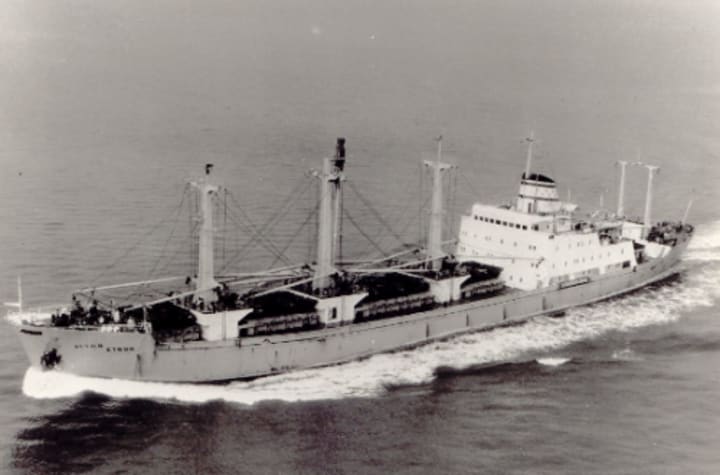
MV Etrog (II)
MV Etrog (II) was my second assignment at sea as a 'sole' cadet or apprentice officer. She was only two years old and far more advanced than the Shiqma. This time I was alone, no other students on board, and I was an integral part of the crew. Most of my time was spent on the bridge, and it was 'on the job' training with no formal lessons. Days at sea were all about schedules, and 'ship time,' which didn't necessarily coincide with local time. Obviously moving through several time zones as you progress East or West would mean adjusting clocks time and time again so we kept to 'ship time.' Being at sea, you don't notice the changes.
There are two very distinct aspects of life at sea, one more obvious than the other. On a regular basis, the ship is either at sea or approaching port and tying up at the quayside where loading/unloading begins. It's a process that requires strict supervision and experience. Usually, it's the Second Officer's responsibility. The ship needs to remain on an even keel, hence the saying 'on an even keel' meaning, keeping the vessel evenly balanced in the water. When at sea it's imperative that the ship is evenly balanced, otherwise in rough seas, it could be fatal in bad weather. Another very important factor is that the cargo is loaded in such a way that it won't move about in heavy seas. Many a ship has met its fate due to 'shifting cargo'
Travel

VW mini bus - the epitome of travel
The second aspect of life at sea is the obvious one—travel. I am not a typical tourist, and while I've been to many tourist places, I much prefer off the beaten track tourism, being amongst the locals, experiencing their way of life. Being in some remote Italian village high in the Dolomites and having pizza at a one table restaurant belonging to an old lady was far more authentic for me than any high street restaurant could ever be, even though the menu could have been printed on a postage stamp. Another off the beaten track experience was having 'chai' in a Bedouin's mud hut with a sugar cube in between my front teeth, located in southern Persia 200 KMs northeast of Bandar Abbas. Not a road, garage or other forms of civilization in site.
Sea life opens up opportunities for seeing the local way of life and places you would never visit. I really enjoyed the lifestyle, but there was a huge downside to it: loneliness. It doesn't lend itself to building long term relationships. One minute you're there, and then you are gone. That includes even friendships. All of a sudden you are a loner, not part of, on the outside. Believe it or not, I was feeling and thinking that at the age of 17. I guess I was an old man in a young body. I was about to make the next serious mistake of my life.
The Army
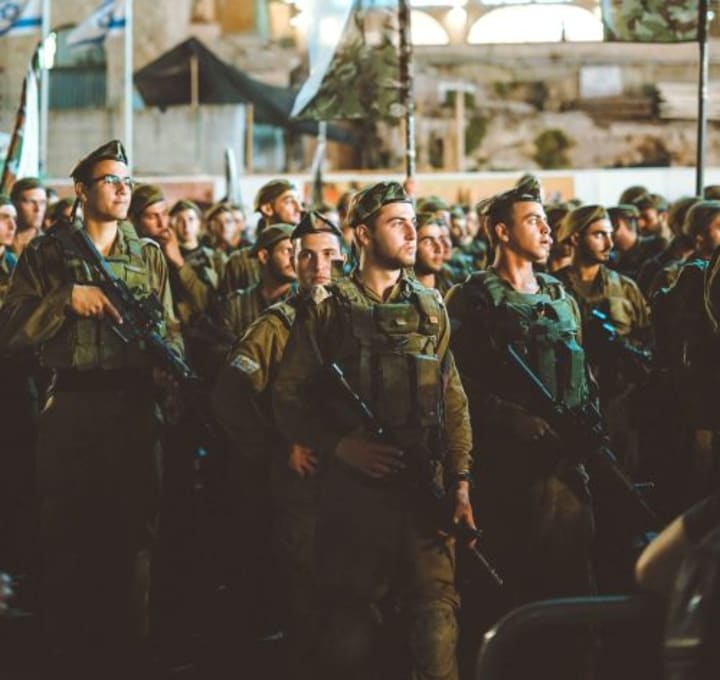
On my return home I met with friends who were all nearing the end of high school. At that age, we began receiving our compulsory military call up papers and I received my papers too. This created a problem for me because, during those years, not doing military service was frowned upon. Everyone had to do military service, and there were few exceptions, even if you had bone spurs like myself and DJT. For the record, bone spurs included, I was given a perfect military medical profile of 97, which means a clean bill of health. There is no 100.
My choices were—sea, adventure and a profession VS army. Shipping was a lifeline for Israel and always has been, like all countries. Being surrounded by enemy states meant that everything coming into Israel was by sea. I'm sure there were cargo flights back then, but whether practical or not is another question. Certainly, it would have been cost prohibitive. The choice for me was military service for 26 months or signing a contract with the merchant navy for four years on full pay. I didn't want to be seen as skipping military service, and so I quit the navy. That was my second HUGE mistake in life. There would be more.
Don't misunderstand. I don't regret having served in the army. It certainly makes men out of boys, and it creates lifelong friendships. It is character building, and I would recommend it for all, prisoners for example. Yes, they may be difficult, but army discipline can handle that. Instead of being a financial burden, they would contribute and, in the process, would become an integral part of society and learn a useful trade. Something similar in nature to the French Foreign Legion or the AFL, American Foreign Legion, would be ideal and it would be a win-win for all. Upon completion of the contract, they would be given a clean slate. That's just my humble opinion.
No, I don't regret my military experience, but I missed the sea life and freedom that it gave me. I missed the open water, the blue skies, the never-ending horizon that never gets closer, the stars at night, the fresh air, the adventure, the hum and vibration of the ship's engines, the silence of the bridge at night, the lights of fishing boats in the distance and so much more.
When I joined the army in August '66, the service was 26 months duration. Initially, the first three months was for basic training, which is mostly running up and down hills with full army gear on your back. You had to follow short, sharp, loud, and many times illogical orders from a superior and you DO NOT question those orders. Sometimes you just can't make it in the 30 seconds allowed. Why they need to shout is not clear to me. A quiet demand for action can achieve the exact same results, and I've known individuals who spoke quietly and their message was VERY clear.
During my basic training, the powers in force decided to increase the compulsory service by an additional four months, which meant after I finished the first stage of three months, running up and down hills all day, and night, I still had 27 months left instead of 23. Four more than when I started with. As mentioned, this is the army. Questions are unacceptable. You keep a low profile. It wasn't popular, but we got over it.
Training

40mm Bofors anti aircraft gun
Okay, so with 27 months left, I began the second stage of basic training, which included 'speciality training.' Part of the training was similar—up and down hills. But the hills were different so it wasn't too boring. Inspections remained and the detainment in barracks remained if a single spec of dust was found in the barrel of your weapon. Your weapon had to be with you at ALL times, ALL times. It was serious business if the corporal or sergeant managed to steal your weapon at ANY time, in the shower, toilet, bed, dining room—no matter where, your weapon had to be with you.
The second stage included assignment to the anti-aircraft division, which was part of field artillery in 1966. It involved operating a Swedish 40mm Bofors anti-aircraft gun. These are five-ton rapid fire cannons mounted on wheels, and pulled behind a truck. They can operate individually, or be connected and controlled by radar. It was heavy work, with 4x40mm shells in each magazine. The cannons were leftovers from before WWII but were reliable, if not antiquated. Now we had a five-ton weapon with a 40mm barrel to clean, in addition to personal weapons, and they were a lot harder to clean, but the same rules applied. A single spec of dust meant confinement to barracks over the weekend, giving us plenty of time to learn how to clean a five-ton anti-aircraft gun. At least at the base, we didn't have to sleep with them. In the field, absolutely. The confinements, although a big disappointment, were no big deal but, when you knew your girlfriend was waiting for you to go to the Friday night party, that was tough. Remember, there were no mobile phones back then, and no public phone boxes either. Mostly letters and postcards. Could have been worse— smoke signals.
Yet another extension of service
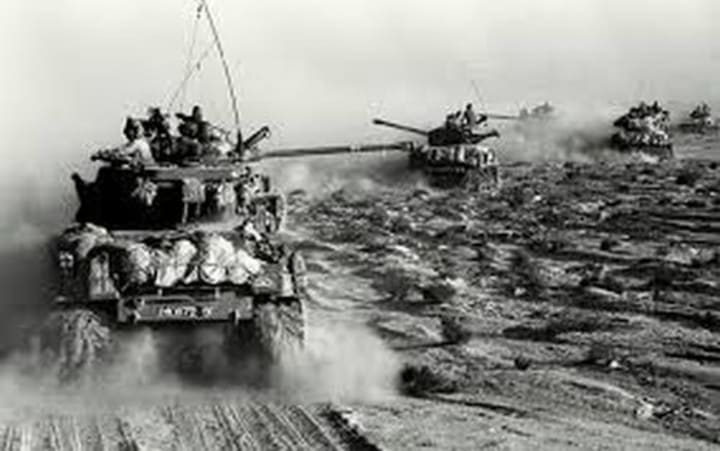
Six Day war.
Two months into the speciality training, the government decided to increase the service by another six months. That meant when I finished the second stage of three months, i.e. six months of military service in total, I would still have two and a half years left. Ten months more than when I started back in August. Instead of finishing in October 1968, I ended up serving until August '69. This was going in the wrong direction. The more I served, the more I had left to serve. Two wars were thrown in for good measure—the Six Day War* and the War of Attrition.*
*Wars are not an act of choice but rather, no choice. There are events that lead up to wars which dictate actions. Sometimes it's a question of defense or retaliation, and other times it's to preempt the other sides intentions. When two chess players are playing each other, a lot of thought goes into every move. Tactics play a big part, and preempting the other's response.
Shivta in the Negev desert.

Corporal training
February '67 was the beginning of my next course. Yes, there were lots of those. I had 18 months in total. I was sent on a corporals course, that's two stripes on the sleeve. In the British army, I think it takes approximately six years to make that rank, but Israel doesn't have the luxury of time. Besides, the bulk of the Israeli military are conscripts doing their compulsory service, whereas the British army is a professional army and, for many, it is a lifelong career.
The corporal's course was down south in the Negev desert, in a place called Shivta. Today it's a world heritage site, but back then it was the dread of all conscripts. It was considered tough. As mentioned earlier, I'd thought I'd run out of hills to run up and down. I hadn't figured on desert plains. There's a lot of them down there, hot during the day and cold during the night, very cold. The desert doesn't hold heat at night.
Shivta was close to the Sinai desert, which was part of Egyptian territory pre 67 war. Intelligence had it that the Egyptians were massing troops and may be planning to attack. The corporal's course was considered a very tough and demanding field training course and we were all super fit. Running up and down hills and across deserts for nine months makes you fit. Because we had just come through months of tough military training, we were chosen and trained for a mission to overrun a Russian designed bunker and trenches, just across the border. From aerial photographs, we knew exactly the layout of the trenches and trained accordingly. Every one of us knew which way to turn, and where the targets would be. White plastic tape was placed on the ground, corresponding with the trenches we were to attack. We trained day and night, and tension was high. It's no arcade game preparing to attack an entrenched enemy. This was the real thing. The feeling was that it was imminent. We had to make sure we had our dog tags on at all time and besides, they are standard regulations. Some of us prepared letters for parents and girlfriends at home. There was no contact and no facility for doing so. I was afraid. You know you may not make it, and may never see family or friends again. But, this is war and you are a soldier. It's not a job you can walk away from because you don't like it. You do it without question. Anyone who tells you that they are not afraid when war is about to begin is not being true to themselves or you.
June 5th, 1967. Attacks on three fronts
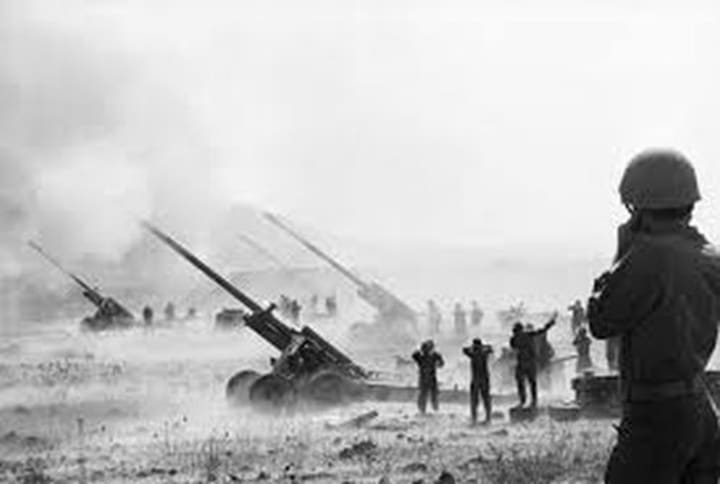
The war broke out on June 5th, 1967. I wasn't 18.5 years old yet. This was the first of many. On June 1st, we received new orders and a truck picked us up and drove back to an airbase in central Israel, Tel Nof. The expectations were that Egyptian, Jordanian, or Syrian aircraft may try to bomb the airfield and take it out of action. The airforce needed immediate protection for the airfields and as we were already considered 'seasoned' anti-aircraft gunners, they brought us back from the front line.
As a newly qualified corporal, I was in charge of one of the three guns in one of the batteries surrounding the base. For crew, I was given new recruits who had joined the army weeks before in May, better known back then as Mao Mao. These kids didn't know what rank meant, didn't know which end of the barrel to look down from, and they were a handful, to say the least. Even more so when we heard artillery shells getting closer from the direction of Jordan. We had to be with the guns day and night and sleeping was in two-man tents next to the gun, with your boots on. As the corporal, I had a whole two man tent to myself. Luxury.
I got injured in that war. I was setting up the tent and the aluminium pole fell on me and opened up a gash above my right eye. It wasn't too bad, and the paratrooper nurse at the clinic took good care of me.
Thankfully the war was over in just six days. I could finally untie the ropes that I'd secured the crew with so they wouldn't run away. Not really but it did cross my mind.
The casualties* of the war were high. Somewhere between 776 and 983 Israelis were killed and 4,517 were wounded. 15 Israeli soldiers were captured. Arab casualties were far greater. Between 9,800 and 15,000 Egyptian soldiers were listed as killed, wounded, or missing in action. Syria lost an estimated 3,500 dead, with 21,000 wounded. 700 Jordanian and 10 Iraqis commandos were killed and 2,500 Jordanians and 30 Iraqis were wounded.
* I have voiced my opinion in a previous chapter about war. People die and don't come home to their families. After the war is over or brought to a halt, politicians sit down together, maybe with mediators and reach an agreement. Every single casualty leaves behind family, friends, relations, and the pain is unbearable. In Israel, I have personally lost a friend. When Israel has a fallen soldier, the whole country as one mourns the loss and feels the pain of the family. Everyone is touched and moved.
It's possible you may obtain the impression that I am a pacifist. I do consider war as futile and a political game but, I would never consider dodging military service. I served my three years and a lot more in other ways, but I do think it is totally unnecessary, especially as the majority of wars are settled around a table and agreements are reached eventually.
Mitla Pass

Mitla pass in the Sinai desert
Following the six day war, I was sent to the Sinai desert, which had been captured from the Egyptians. We deployed an anti-aircraft battery at the entrance to the Mitla Pass, overlooking the plain towards the Suez Canal, which was about 30 miles to the East. My role was battery sergeant, even though I was a corporal. Part of my responsibilities were to bring supplies from a distribution point adjacent to the Suez canal. A refrigerated truck would arrive twice a week with fresh supplies, and all units from the area would send a command car to pick up supplies. It was when I was there that an Egyptian helicopter rose just the other side of the canal. Probably for photography and intelligence gathering. I didn't know.
Uzi submachine gun

9mm Uzi
My weapon was an Uzi submachine gun, which is very short range, but even so, I actually considered shooting at the helicopter. Over long distances, it is not the most accurate because of the short barrel. However, at short range, it is fatal. Also, a 9mm bullet would cause very little damage to a helicopter unless by luck.
Egyptian Mi-8

Russian made Mi-8
I wasn't sure at the time whether it was an act of aggression or whether actually posed a danger to us because it all happened in a split second. There was zero chance of me actually hitting the helicopter, because it was at least 300 to 400 meters away, and despite firing 600 rounds a minute, the effective range would have been closer to 200 meters. I decided against it. Who knows what would have happened? There was no point in provoking a military helicopter that had far more offensive weapons than my Uzi. I've made bad mistakes in life, but glad I didn't make that one. It then flew off towards the direction of Cairo. Maybe I'm in so unknown photograph on someone's wall.
End of Part 3
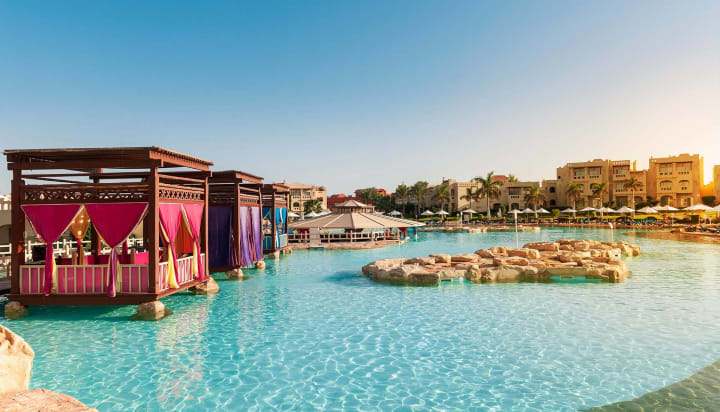
Sharm el Sheikh
Part 4. Another two courses, officers I and II, building the very first disco in Sharm el-Sheikh, my discharge in August '69 and the months leading up to a phone call by someone I didn't know from Tel Aviv.
About the Creator
P J
At 70 years old, it would be an understatement to say I've had an interesting and all-encompassing life. I hold two nationalities, speak two languages fluently and have two distinctly different personas. Not a split personality:-)



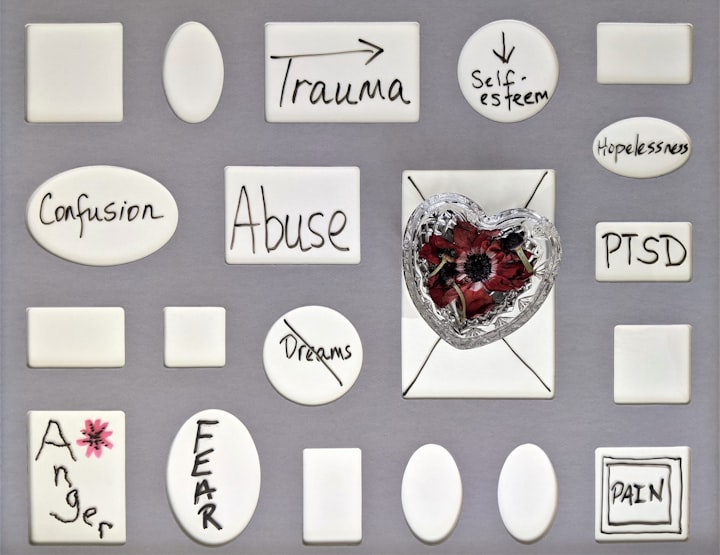


Comments
There are no comments for this story
Be the first to respond and start the conversation.